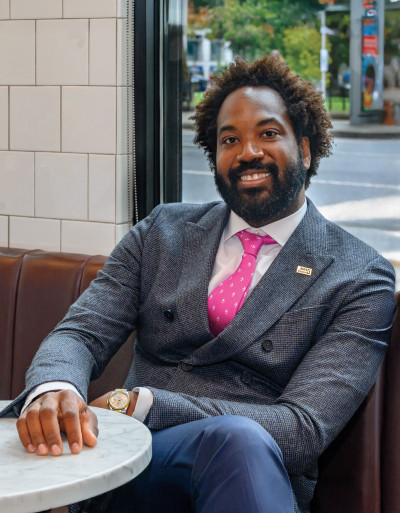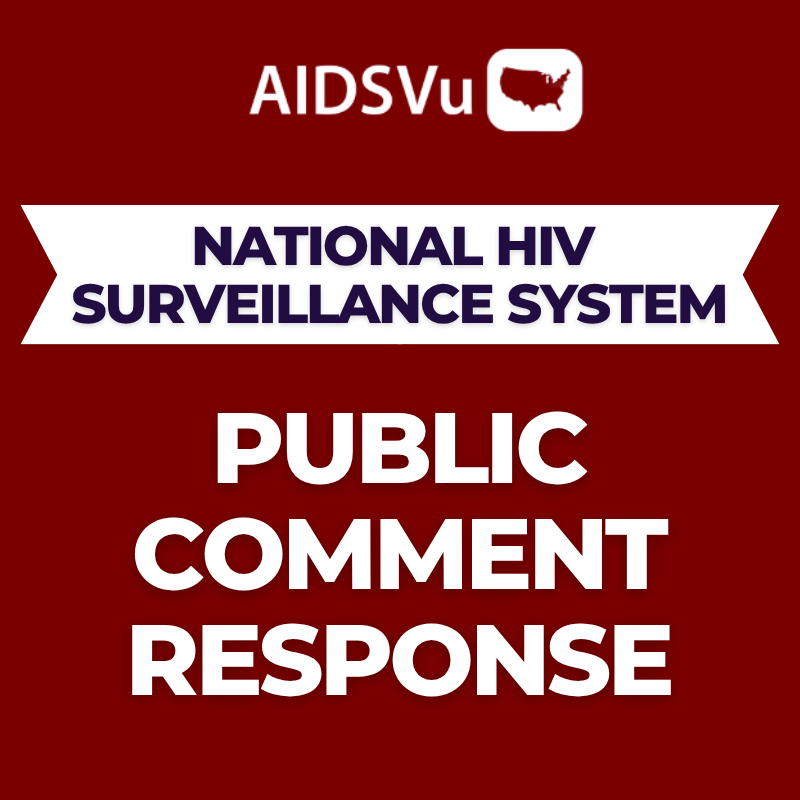Tori Cooper is the Director of Community Engagement for Human Rights Campaign Foundation’s Transgender Justice Initiative. In 2021, she was the first Black transgender woman to be appointed to the Presidential Advisory Council on HIV/AIDS (PACHA).
Q: Your current role includes serving as the Director of Community Engagement for HRC Foundation’s Transgender Justice Initiative. What drew you to this line of work, and what have your main takeaways in this position been?
This work is my life. As a proud Black trans woman who holds a lot of privilege in society, I realize that I must use that privilege to ensure that my trans and gender expansive family has access to the same opportunities that I have. That means access to meaningful employment, affirming and comprehensive healthcare, living free of stigma and hatred for simply being who you are, and having the right to simply BE. Too many of my trans siblings live in places where people are fighting tooth and nail to erase our very existence and working to make life more difficult for us through policy and lies.
Q: In 2021, you were the first Black transgender woman to be appointed to PACHA. What are the main disparities in HIV care and prevention that you’ve noticed between transgender and cis-gender individuals living with HIV, and how do you think the U.S. can go about narrowing these gaps?
My belief is that the HIV care system was built by and for the benefit of white, cisgender, gay men, many of whom came from a privileged socio-economic status. I’m thankful for those men, who created standards of care and advocated for themselves. With that being said, the epidemic is now far more widespread, encompassing and disproportionately impacting Black and Brown people who traditionally have less access to prevention strategies and treatment options than white cis men. Black cis women represent one of the fastest growing groups of new diagnoses, and Black trans women have HIV diagnoses numbers that defy belief. CDC reports suggest that around 20-40% of all Black trans women have an HIV diagnosis across the country. In the South, those numbers are even higher.
These numbers are a direct result of multiple systemic issues including racism, classism, homophobia, transphobia, elitism, stigma, anti-trans/LGBTQ policies and other societal ills. Black people historically have less access to quality education, safe and stable housing, quality healthcare and equitable employment. Lack of available prevention options leads to increased rates of HIV. Less access to culturally appropriate, comprehensive healthcare, leads to poorer health outcomes and lower viral suppression rates for Black women – trans and cis. When a woman has an undetectable viral load, she cannot pass HIV. U=U ends the likelihood of new infections and aligns with goals to end the HIV epidemic. U=U also leads to greater health outcomes and less incidence of other life altering diagnoses related to HIV. We must treat housing, employment, and education as prevention tools and HIV healthcare. We must ensure that folks who can benefit most from PrEP, get it. We must vote and support candidates who acknowledge the rights of all women, BIPOC communities and all marginalized folks.
Q: According to data from the Ryan White HIV/AIDS Program, in 2021 75.2% of transgender women and 67.8% of transgender men living with HIV lived below the federal poverty level. What do you think are the main contributors to these high levels of poverty and other adverse social determinants of health seen in transgender individuals living with HIV?
Some of the main contributors to poverty are housing, employment, and education. We must treat these contributors as both HIV prevention tools and healthcare. When people have equitable employment that pays a livable wage – with included health benefits – they are more likely to have opportunities for PrEP or high-quality HIV care. Not all trans women engage in “risky” sex. Not all trans women living with HIV live in poverty. There is no one formula that works for everyone. When we ensure that people living with HIV/AIDS (PLWHA) have access to the same levels of support and care for others, we see better health outcomes and lower morbidity rates. When folks who traditionally have the least in society thrive, so does everyone else.
We must end the stigma that keeps trans people from employment and education around sexual health. Until people who are not trans accept this, then we are continually fighting for simple recognition when we all should be fighting together against policies that are making all of our lives more expensive and more difficult. HIV is insidious in that it exists largely in social and sexual networks. BIPOC folks more often enter relationships with folks in our own communities. Poverty impacts a person with an HIV diagnosis’ ability to get in care and stay in care. Even today, hospitals and medical centers are closing in high HIV-impacted areas in metro Atlanta and other places. That leaves medical deserts, forcing people to go outside of their neighborhoods for care. For example, a trans woman may live in a part of town with no testing site, PrEP provider, ID doctor or emergency room in her neighborhood. If she needs PEP, her options are incredibly limited and requires her to travel to get it. Her time is limited to 72 hours (about 3 days) after exposure, and she may not have reliable transportation or employment to catch an Uber or Lyft. If she seroconverts, she will have to travel outside of her neighborhood for appointments. There is often the fear of being outed and treated poorly simply because of her gender identity, both in and out of the doctor’s office. Having condomless sex is something that many of us do. For folks with fewer health options, the outcomes could be dire. Her HIV status is directly impacted by her employment status, housing, and access to transportation and healthcare.
Lastly, there is also this perception that trans people want special laws. We don’t. We simply want existing protections to include us and to not have laws targeting us simply for who we are.
Q: In 2021, transgender individuals living with HIV experienced higher levels of stigma than cis- gender men and cis-gender women. What is the best way to combat misinformation and stigma surrounding transgender men and women living with HIV?
Every year, trans individuals living with HIV experience higher levels of stigma. 2021 was simply the first year that research proved it. The stigma of HIV for trans and gender expansive people is compounded by anti-trans sentiment, transphobia and homophobia. There is no single, best way to combat misinformation and stigma. They are both as pervasive and varied as the people who are perpetuators and victims. With that being said, we must continually battle misinformation with truth. The truth is, HIV is a manageable disease. The truth is that people living with HIV are not dirty. The truth is that an undetectable viral load equals untransmittable. The truth is that U=U is an effective end to possibility of new infections. The truth is that stigma is based on fear. And fear is only real to you. To combat fear, we must address its root causes and educate ourselves on what is real and what is not. There are many advocates who challenge stereotypes and stigma to provide education to their peers and to the masses. There are many messages that resonate, and we must continue to speak to and with people who can understand the way that we communicate our messages. In other words, everyone doesn’t hear things the same way. Our messages and messaging must be as diverse as we are as a people.
Q: April 18 is National Transgender HIV Testing Day, which encourages routine HIV testing, status awareness and HIV prevention in the transgender community. What message would you like to communicate to the transgender community about HIV testing, prevention, and treatment?
My messages are consistent and clear. It is better to know than not to know. When a trans or gender expansive person knows their HIV status, they can then take better care of their health. HIV is manageable and no longer a death sentence. When you don’t know your status, HIV wreaks havoc on your body and can impact your mental health. On April 18 of each year, our community has a day set aside to prioritize affirming testing and linkage to PrEP or HIV care. It is monumental that we are living in a time where our needs are continually being attacked and ignored. I employ all my siblings to use this day to find out your status and take the steps necessary to live happier and healthier lives. We have far too many other issues to worry about in an election year than to have to worry about HIV. PrEP is over 99% effective when used properly. Viral suppression is a “gold standard” for many people living with HIV. On April 18, we have a day set aside for our community to put our health needs first in a way that can lead to happier, healthier, and better-informed sex lives.




